
Search history
Clear allSearch by image
XDrag and drop an image here or upload an image
Max 5MB per image
UploadSign In | Join

Search history
Clear allSearch by image
XDrag and drop an image here or upload an image
Max 5MB per image
UploadSign In | Join
X Email Mobile
Xinxin Electron Products Firm 15yr.
Contacts:Song Hui Chat
Mobile:86-13606891335
E-mail:623214097@QQ.com


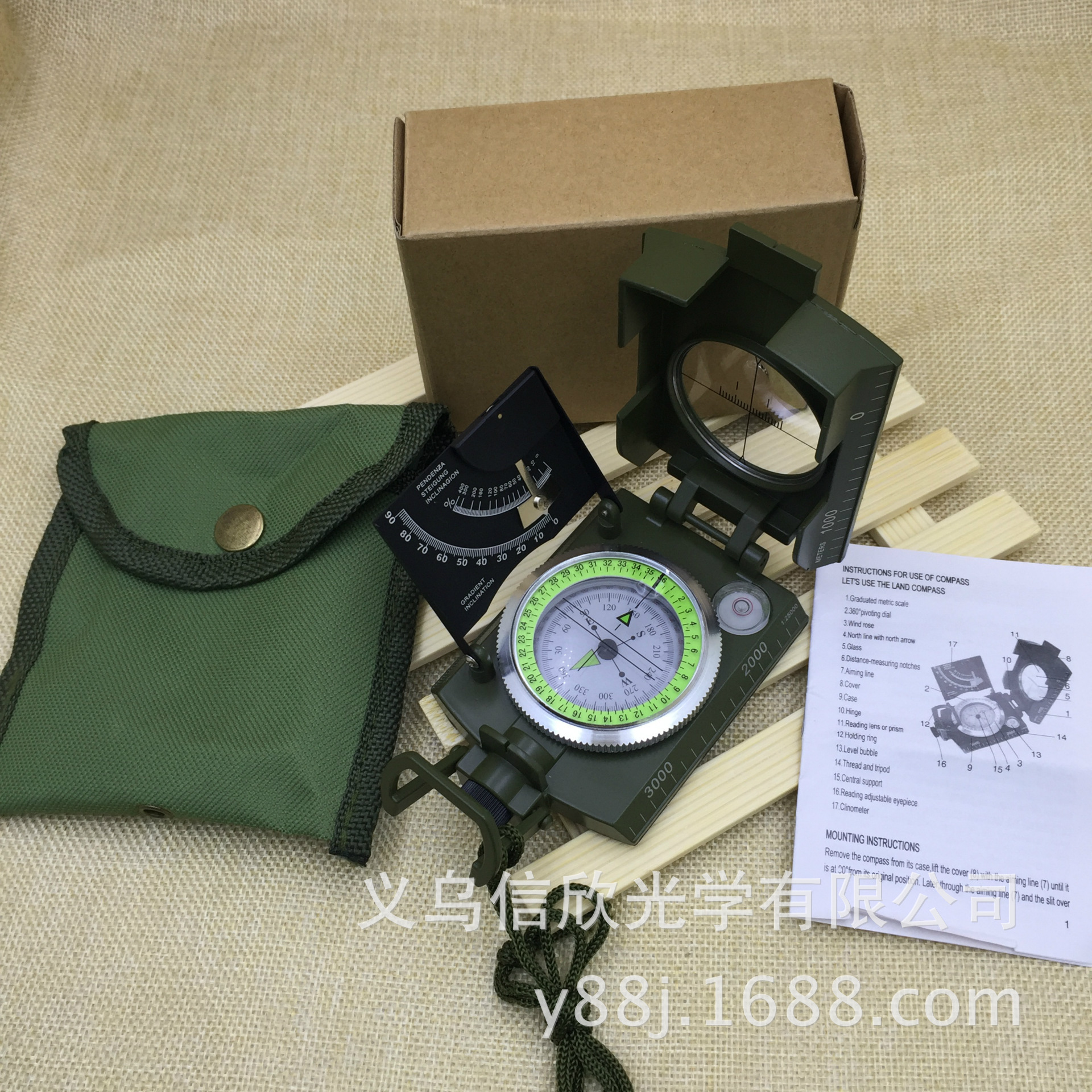
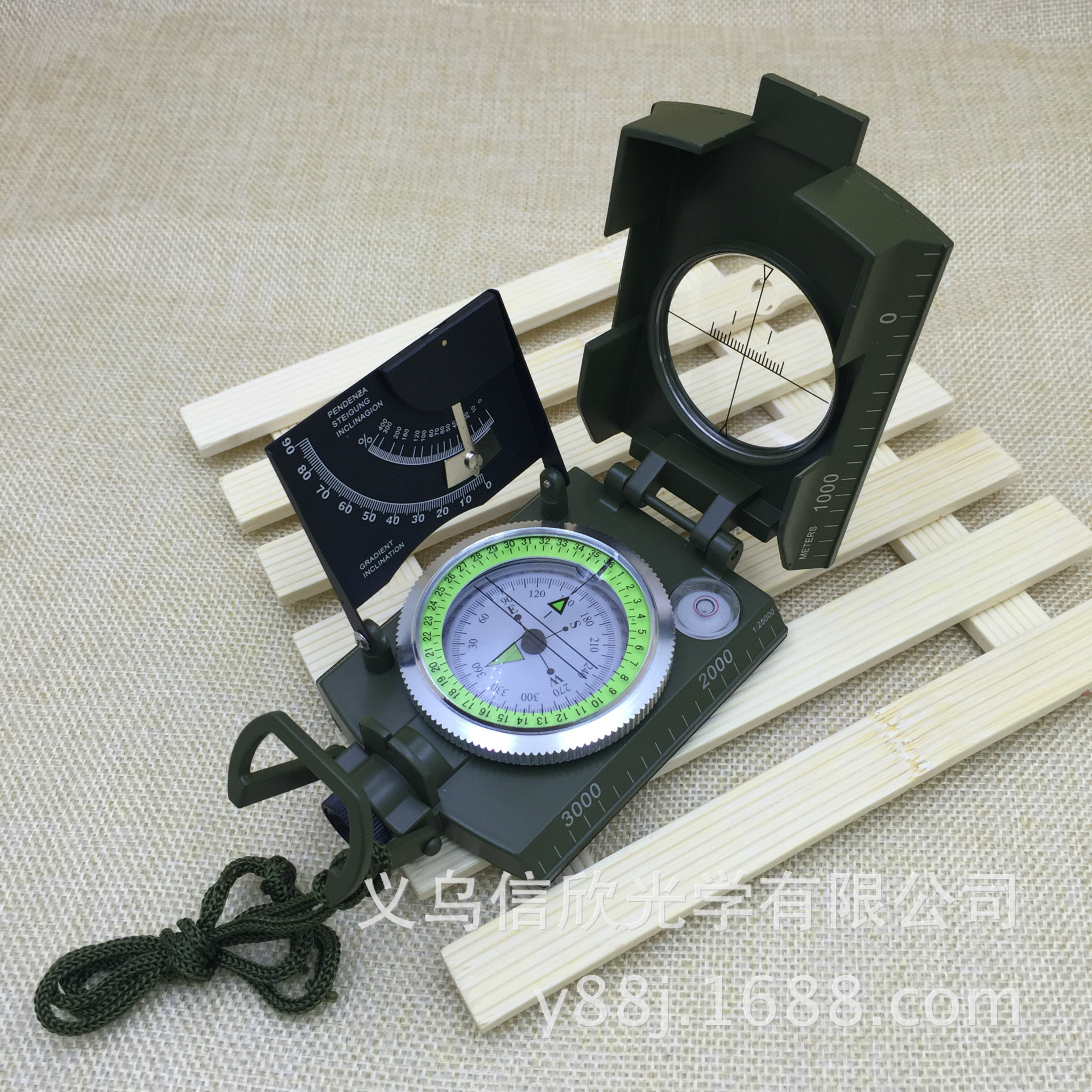
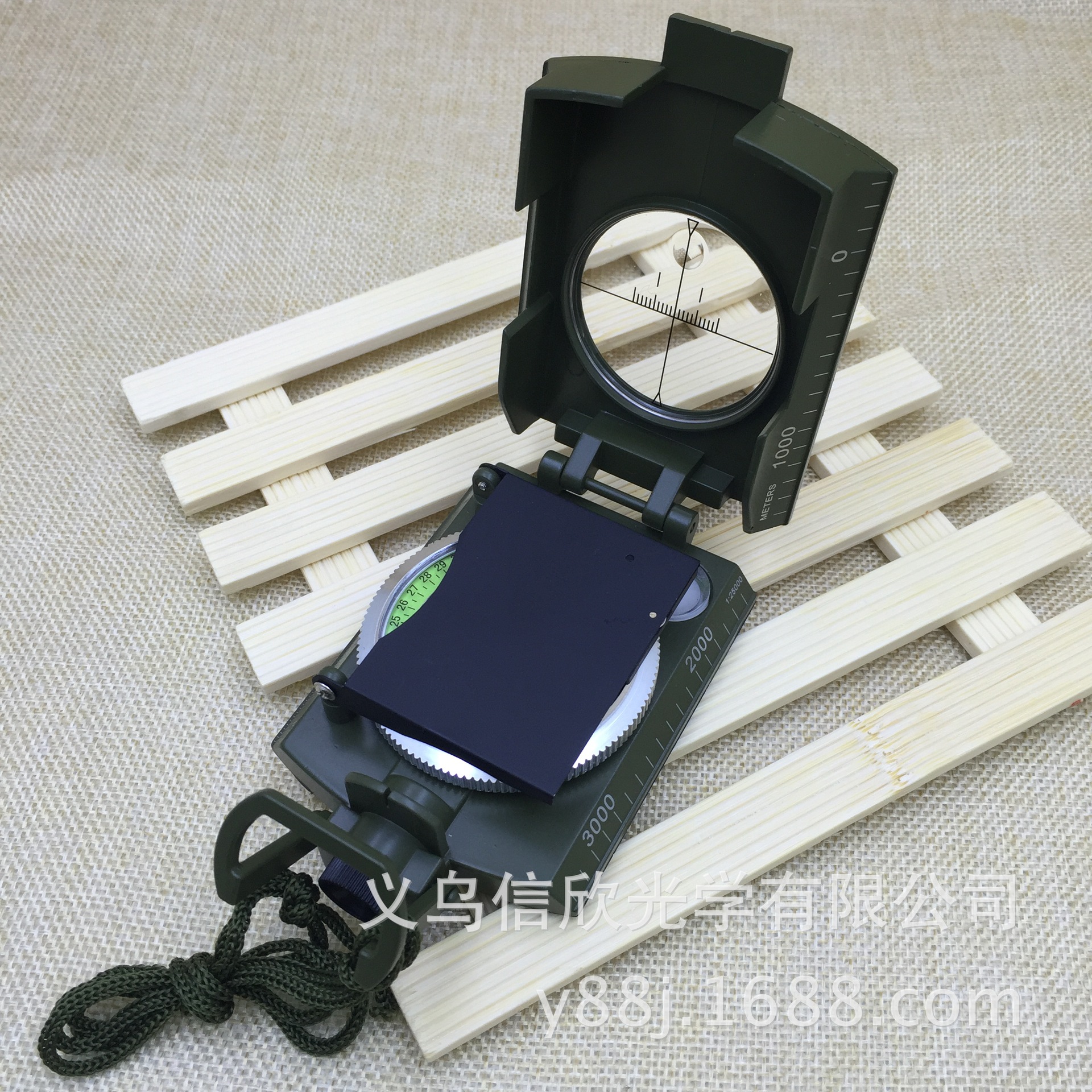
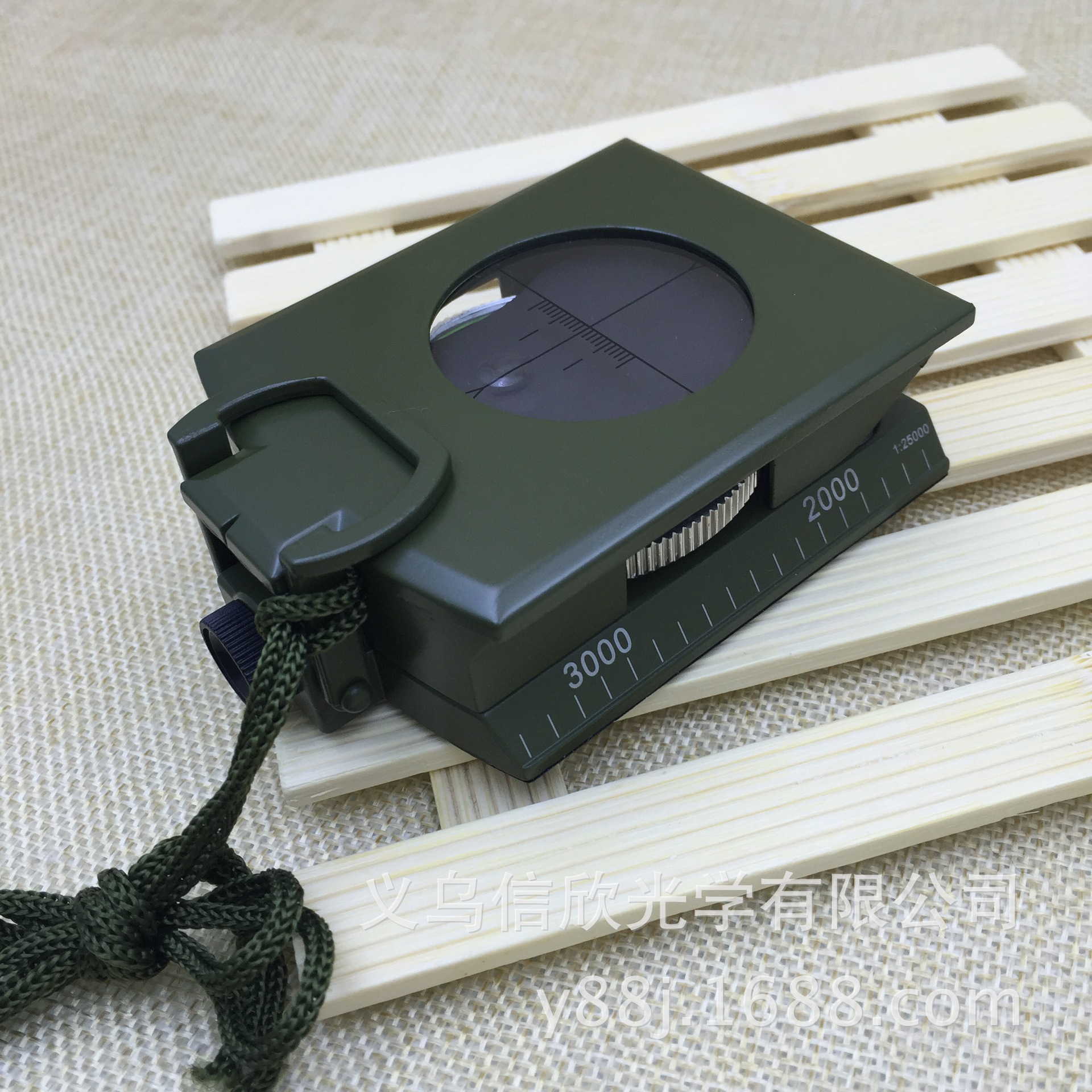
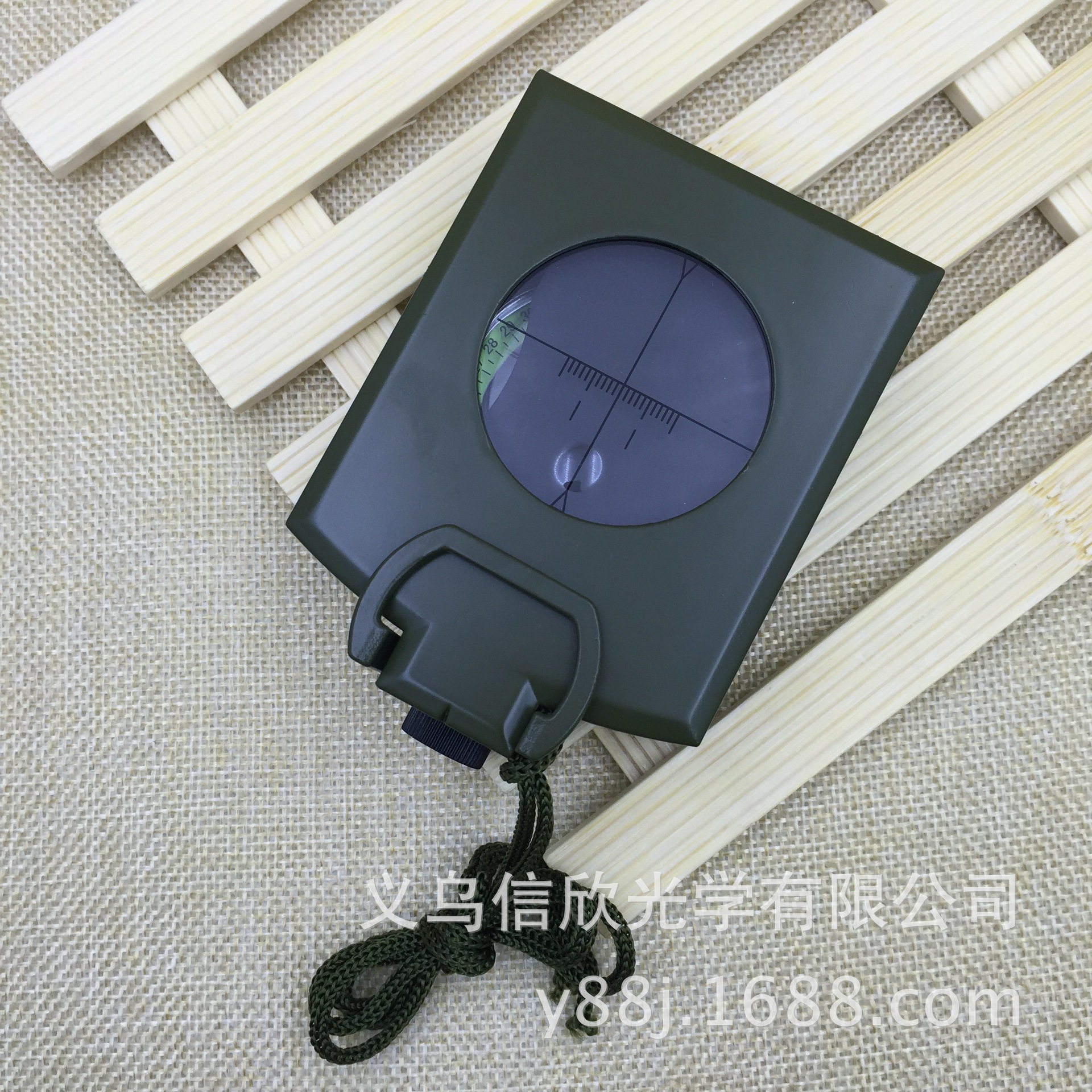
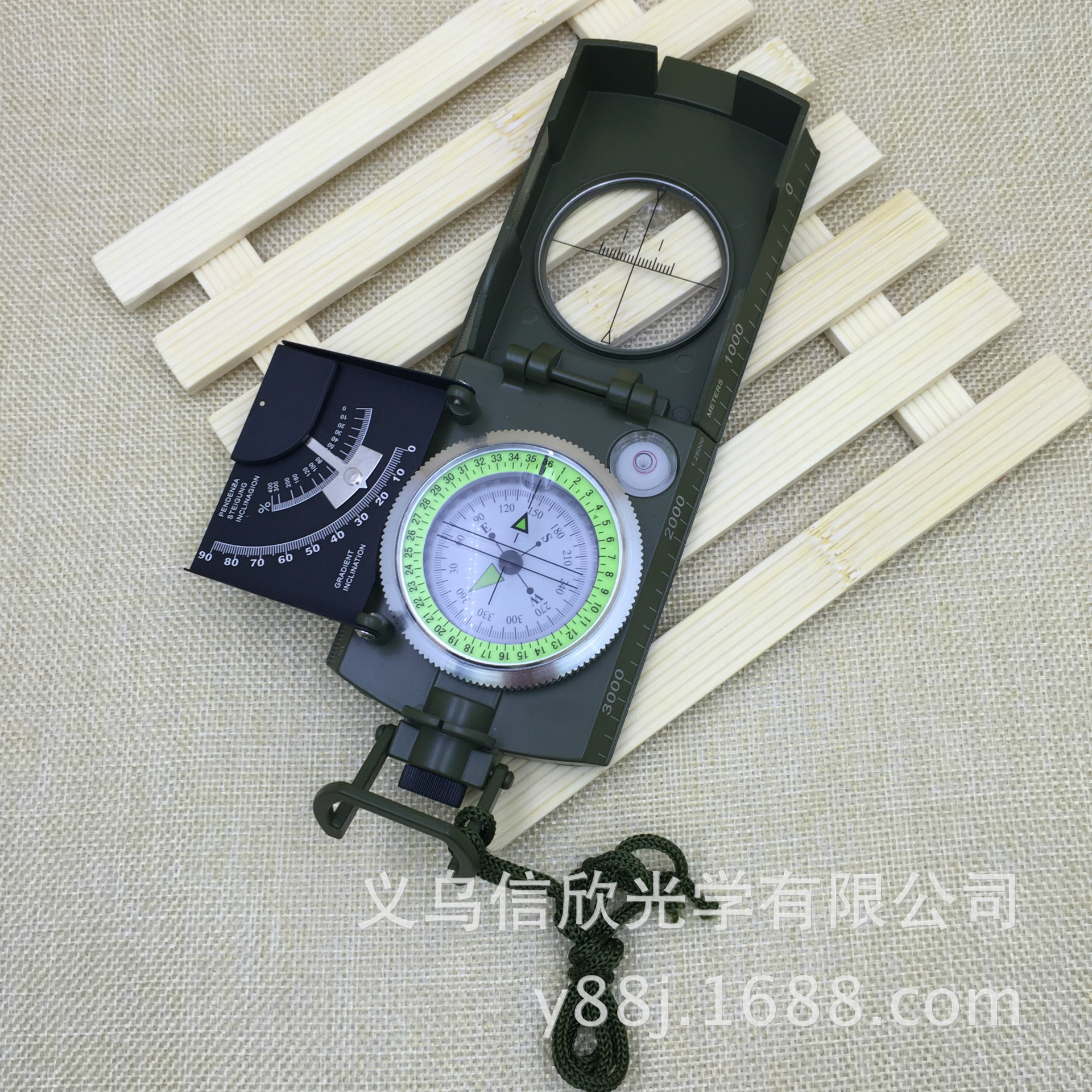
product Introduction
1. Metal dial
2. 360 du turntable
3. The dial
4. North Line and North Arrow
5. The glass
6. The distance scale
7. The line-of-sight
8. The cover
9. The base
10. The hinge
11. The reading lens
12. The grip ring
13. The level
14 The screw hole and a tripod
15. The Centre support
16. Adjustable reading lens
installation Instructions
take the compass out of the box and open the lid (8) with the line of sight (7) at right angles to the base. Then aim at Objects 100 meters away by aiming line and reading lens. Adjust the lens until you can clearly see the scale on the dial. If it is an adjustable reading lens, adjust the lens until you can see the scale on the degree plate.
How to determine the position of the traveling direction
jump the compass to the reading state, aim at an object, observe the object through the scale and line of sight on the reading system, and then read the reading in the direction of travel on the dial, which corresponds to the azimuth angle of the object.
The known coordinates find target
, if the reading of the direction of travel is known, observe through the reading system and rotate until the target appears on the turntable.
Map orientation
to complete more complicated operations on the map, we must first determine the north of the map according to the magnetism of the Earth. First, aim the centimeter at your nearest meridian, so that the upper half points to the north of the map.
Meridian is a parallel line from the top descending on the map. Hold the compass and turn the map until the North seeking line coincides with the scale on the glass. The positioning of the map is completed.
Determine the direction of travel on the map
1) align the map to the north and draw a line from the origin to the destination.
2) open the compass, and then put the centimeter line on the above line, so that the scale on the compass glass shows the orientation of the object. If the compass of this model does not have a centimeter line scale, it is OK to align the line of sight with the scale. Make sure that the phosphorescent arrow on the glass coincides with the North seeking line on the turntable.
3) read the reading of the traveling direction, which corresponds to the scale line on the glass.
4) move the compass away from the map and observe the rotation through the reading system until the reading in the direction of travel appears. To find an auxiliary destination, you must be on the same observation line and then track it. Repeat this operation until the destination is reached. The longer the route is, the more operations you perform.
Determine the location on the map
select 2 easy-to-see points on the ground and mark them on the map. After the map is located, measure the degree of position (A) with A compass, and then draw A line on the map according to the measured value. Use point A and then perform the same operation to find point (B). The intersection of the two lines is the position of the observer on the map.
Use angle meter
angle meter can be used to measure the difference between height and slope. It can swing or operate automatically. Open the compass and release the pendulum. Aim at the upper half (or lower half) of the target through the power lens (lower) and scale (lower). Pay attention to forming a line. The greater the angle of Compass tilt, the greater the position change of angle meter. Aim at the target and then tilt the compass to the angle meter side, and the pendulum stops swinging, thus reading the degree easily. If the object is under the Observer, observe it through the upper half of the lid.
Calculation table
I II III IV V
angle angle angle angle slope height
0-360 0-6400 0-400%-----------
distance
I II III IV V
angle angle angle angle slope height
0-360 0-6400 0-400%-----------
distance
A height of the object
when calculating the inclination (degree or percentage), use the first column (I) of the calculation table and look for the relevant values of the fourth column (IV) and The Fifth Column (V). After knowing the distance, you can calculate the height of the object. For example (Figure 7), for an object 4000 meters away, the inclination is 14 degrees:
A) 4000 m X 25%
------------------- = 1000 this formula applies to column 4
100%
B) 4000 m X1/4% This formula applies to the fifth column
D) measure ground distance
according to the principle of point C, the distance between two visible points on the ground can be measured. For example, you can measure the width of the farmhouse, the length of the bridge, etc. Measuring the distance from your position to an object requires a necessary condition: the line between the two positions must be at right angles to the measured object.
To measure the angle
measure the right side of the object. Swing the dial to move it toward the correct position.
Remember the set degree and slowly move the compass to the left of the object. Subtracts the first degree value from the determined second value, and the obtained degree is the angle value of the left and right sides of the object.
From the North to measure the angle
if 360 degrees (North) appears in the reading system during the measurement, 360 degrees = 0 degrees should be considered.
The calculation method is as follows: 360 degrees-second value + first value
if the first degree is 4, the second degree is 354, and the angle is 10.
For example, Figure 8
once the degree has been calculated and the distance is known, the width should be 1/20 of the distance according to column I and column II:
3 Degrees = 2000 meters 1/20=100 meters
or according to the calculation table:
3 Degrees = 5% of 2000 meters = 100 meters
measure the distance of an object with known height and width
when the height or width of an object is known, the distance of the object can be easily calculated by using the above formula.
In other words, if the width of an object with an angle of 8 is 1/7 of the distance, then in turn, the distance should be 7 times the width or height.
Measure distance with glass scale
some models of glass covers have not only aiming lines, but also scales, when the distance between two objects at the same level of the observer is known, the distance of one object can also be measured. First, calculate the scale value between the two targets on the horizontal line. Each scale is 10 units. Divide the unit number by the distance value and multiply it by 1000.
For example, if the distance between two objects is 36 meters and the scale value on the glass is 12, the result is:
12X10=120
120
-------- X1000 = 300 meters (distance)
36 m




Update time:
TOP